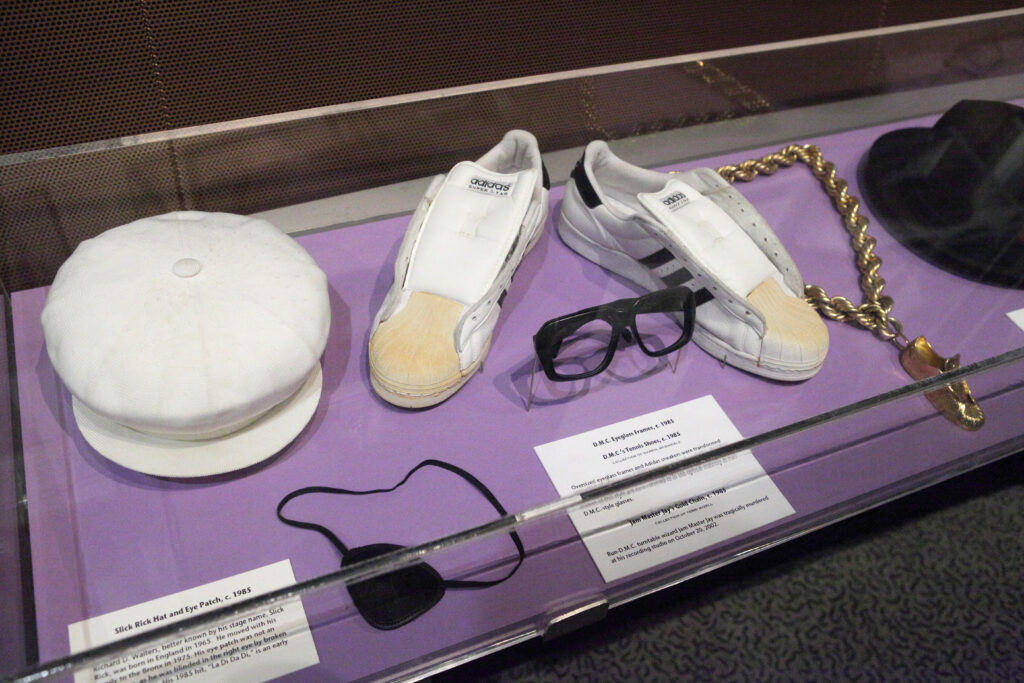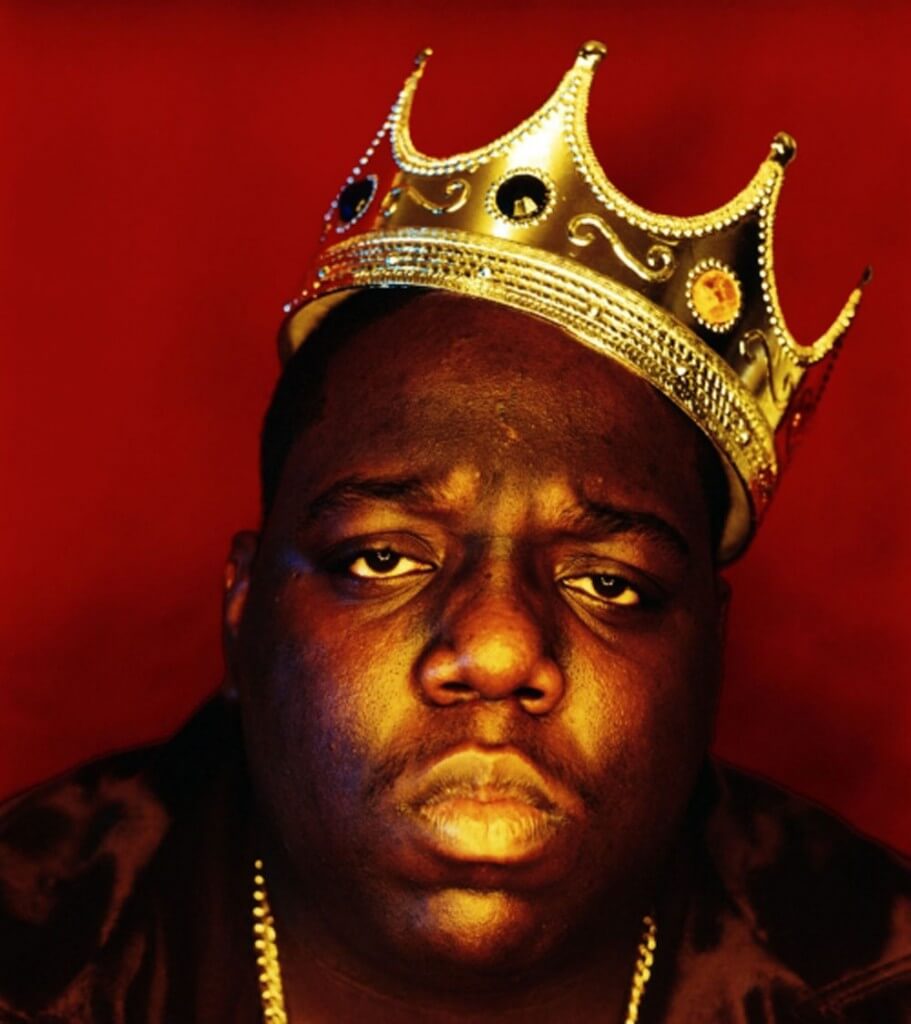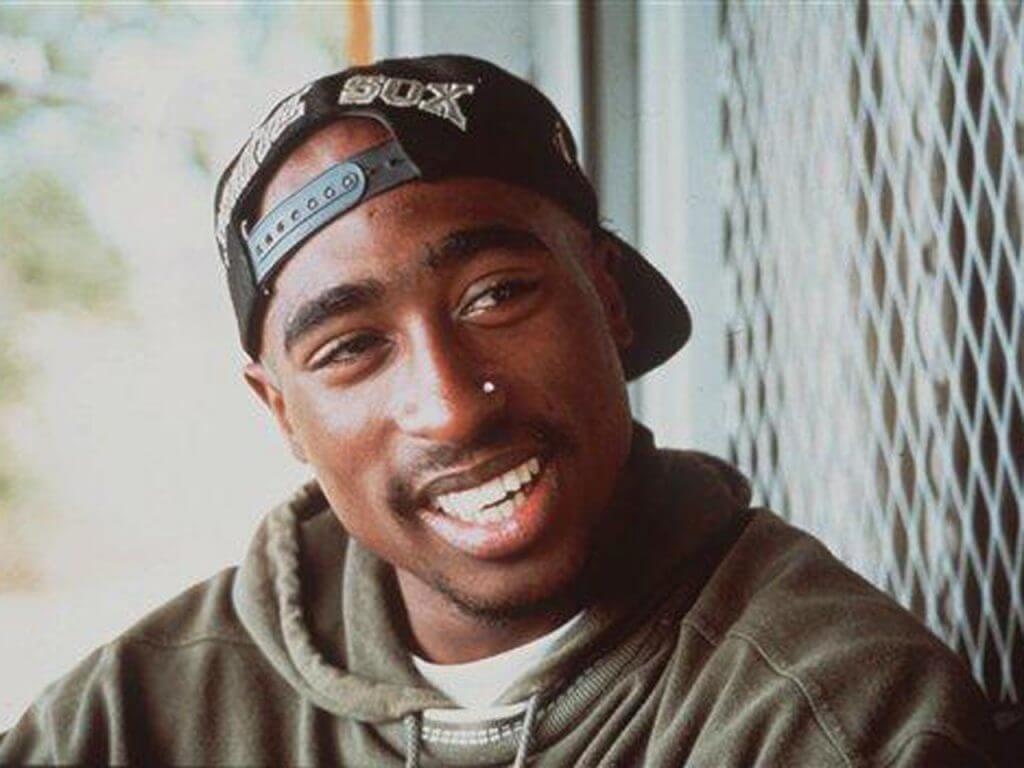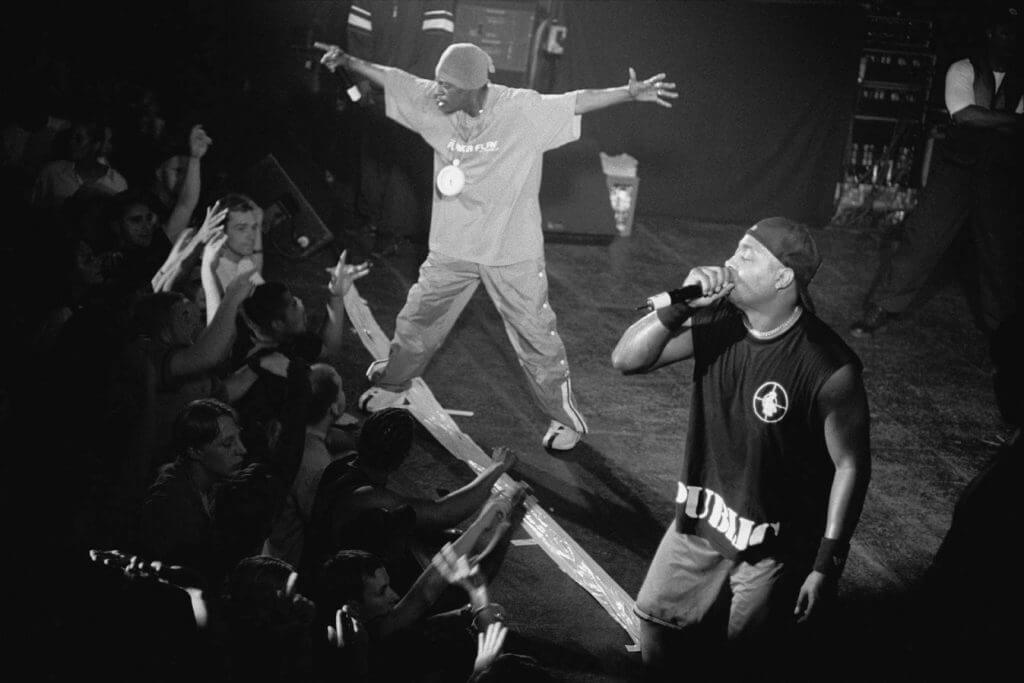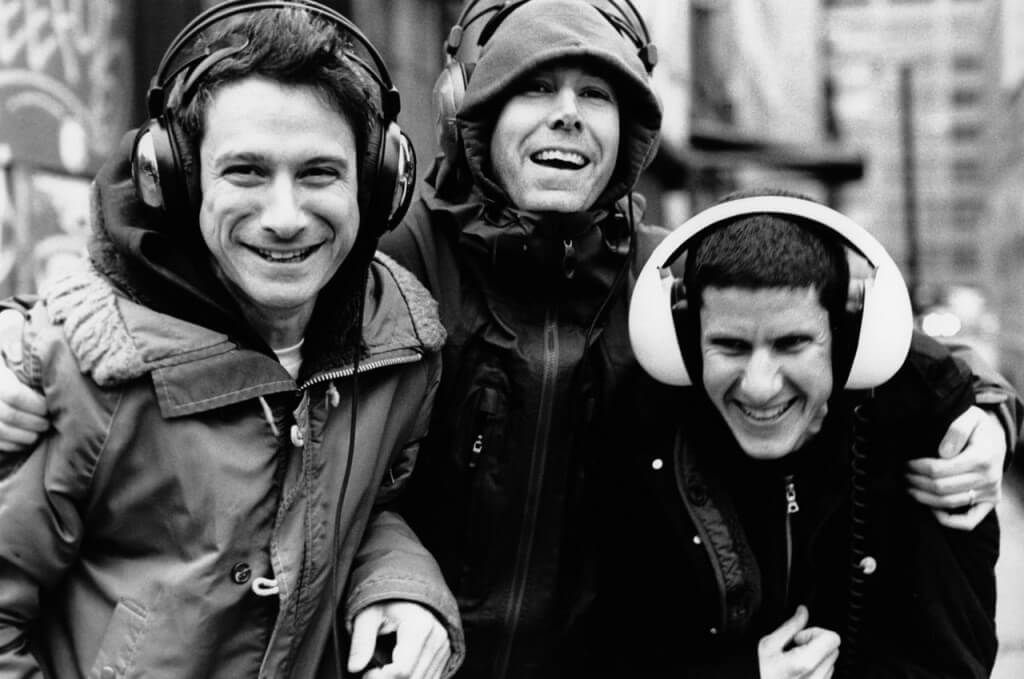
Hip Hop and rock have long been intertwined, with both genres sharing a rebellious spirit and a focus on social commentary. It’s no surprise, then, that several Hip Hop artists have been inducted into the Rock and Roll Hall of Fame, the prestigious institution that honors the greatest musicians of all time.
The first Hip Hop artist to be inducted into the Rock and Roll Hall of Fame was Grandmaster Flash and the Furious Five, in 2007. The group, which was formed in the Bronx in the late 1970s, is credited with pioneering the art of turntablism and helping to bring Hip Hop to a wider audience. Their seminal 1982 track “The Message” is often cited as one of the most important songs in Hip Hop history, and helped to establish the genre as a powerful force for social commentary.
Another iconic Hip Hop act that has been inducted into the Rock and Roll Hall of Fame is Run-DMC. The group, which was formed in Queens in the early 1980s, helped to popularize Hip Hop and bring it to mainstream audiences around the world.
Public Enemy, another influential Hip Hop group, was inducted into the Rock and Roll Hall of Fame in 2013. The group, which was formed on Long Island in the mid-1980s, is known for its politically charged lyrics and innovative production techniques. Their album It Takes a Nation of Millions to Hold Us Back is widely considered to be one of the greatest albums of all time and helped to establish the group as one of the most important voices in Hip Hop.
2Pac, who was born in New York City but raised in California, is considered to be one of the most iconic rappers of all time, and his impact on Hip Hop culture is still felt today, more than two decades after his death. His politically charged lyrics, as well as his unapologetic portrayal of the realities of life on the streets, helped to establish him as a powerful voice for change. He was posthumously inducted in 2017.
Other Hip Hop artists who have been inducted into the Rock and Roll Hall of Fame include N.W.A., the legendary West Coast group that helped to establish gangsta rap as a major force in Hip Hop; Beastie Boys, the groundbreaking group from New York that helped to popularize Hip Hop among white audiences; The Notorious B.I.G., the Brooklyn-born rapper whose untimely death at the age of 24 cut short a career that had already established him as one of the greatest rappers of all time; LL Cool J, the Queens-born rapper whose pioneering role established him as Hip Hop’s first superstar; Jay-Z, rap’s first multi-billionaire; and Eminem, the best-selling Hip Hop artist of all-time.
Hip Hop’s influence on rock and roll cannot be overstated. From the use of samples and turntablism to the socially conscious or unapologetically raw lyrics that have become a hallmark of the genre, Hip Hop has helped to shape the sound and style of modern music. And as Hip Hop continues to evolve and push boundaries, it’s likely that we’ll see even more Hip Hop artists inducted into the Rock and Roll Hall of Fame in the years to come.
In this listing, we’ll explore the impact of each of the Hip Hop artists who have been inducted into the Rock and Roll Hall of Fame. We’ll delve into their most important albums and songs, their cultural significance, and the ways in which they have helped to shape the course of Hip Hop history.
We’ll also examine the reactions of the Hip Hop community to the Rock and Roll Hall of Fame, which has been criticized by some for its lack of diversity and its focus on traditional rock music. While some Hip Hop artists have embraced the honor and see it as a validation of their impact on music and culture, others have been more skeptical, viewing the institution as an outdated relic that fails to properly acknowledge the contributions of Hip Hop and other genres.
Ultimately, however, the fact that Hip Hop artists have been inducted into the Rock and Roll Hall of Fame is a testament to the enduring impact of the genre and the ways in which it has reshaped the musical landscape as a whole. Hip Hop has always been about breaking down barriers and challenging the status quo, and the fact that its artists are now being recognized alongside the greatest rock musicians of all time is a sign of just how far the genre has come.
Whether you’re a die-hard Hip Hop fan or a casual music listener, this listing is an essential resource for anyone interested in exploring the intersection between Hip Hop and rock, and the ways in which these two genres have influenced each other over the years. From Grandmaster Flash and the Furious Five to Eminem and beyond, these artists have left an indelible mark on music and culture, and their legacies will continue to inspire and influence future generations of musicians and fans.
Eminem - Class of 2022
Eminem, the music icon who holds the title of the best-selling artist of the 2000s, has been inducted into the Rock and Roll Hall of Fame in 2022, cementing his place in the pantheon of music legends. With 15 Grammy awards under his belt and a groundbreaking record of 10 consecutive Number One debut albums on the Billboard 200, Eminem’s influence on the music industry is undeniable. Not only has he made a significant contribution to the world of Hip Hop, but he has also played a vital role in establishing it as the most commercially successful music genre globally. This induction is a testament to Eminem’s extraordinary career and lasting impact on the music industry.
Eminem’s most important albums include The Slim Shady LP (1999), The Marshall Mathers LP (2000), and The Eminem Show (2002). These albums showcased Eminem’s raw talent as a rapper and his ability to address controversial topics such as violence, drug addiction, and societal issues. The song “Lose Yourself” from the soundtrack to the film “8 Mile” is also considered one of Eminem’s most iconic and impactful tracks, and won him an Academy Award for Best Original Song.
Eminem’s cultural significance extends beyond just his music. He is one of the best-selling artists of all time, with over 150 million records sold worldwide. He has also been recognized for his contributions to the film industry, including his acting role in “8 Mile,” which earned him critical acclaim and further solidified his status as a cultural icon. Eminem has also been a prominent figure in the fight against censorship and the protection of free speech, particularly in the context of Hip Hop.
One of the key ways in which Eminem helped to shape the course of Hip Hop history was by bringing a unique perspective to the genre. As a white rapper from a lower-middle-class background, he was able to address issues that were not typically addressed in Hip Hop at the time, including poverty and drug addiction. He was also able to use his platform to speak out against societal issues such as racism and political corruption.
Eminem’s impact on Hip Hop has not been without controversy. Some of his lyrics have been criticized for their violent and misogynistic content, and he has faced accusations of cultural appropriation. However, Eminem has always been unapologetic about his artistry and his right to free speech. He has used his platform to address these criticisms and to promote his message of self-expression and individuality.
Eminem’s induction into the Rock and Roll Hall of Fame is a recognition of his immense talent and his impact on music and culture. Despite controversy and criticism, Eminem has remained a significant figure in Hip Hop and a champion of free speech and artistic expression.
Jay-Z - Class of 2021
In 2021, Jay-Z was inducted into the performers’ category of the Rock and Roll Hall of Fame, becoming eligible for nomination in the first year possible as his debut album, Reasonable Doubt, celebrated its 25th anniversary the previous year. The rapper expressed his gratitude for the honor in his acceptance speech, acknowledging that growing up, he never believed that Hip Hop could be recognized by the institution. With 23 Grammy awards to his name, Jay-Z said he hopes to inspire future generations of artists by proving that anything is possible in the music industry.
Born Shawn Corey Carter in Brooklyn, New York, Jay-Z rose to fame as one of the most successful and critically acclaimed rappers of all time, with 14 studio albums, 13 No. 1 albums, and numerous hit singles to his name. Jay-Z’s rise to fame began in the late 1990s when he released his debut album Reasonable Doubt (1996). The album was a critical success and established Jay-Z as a major player.
One of Jay-Z’s most important albums besides Reasonable Doubt is his 2001 release The Blueprint, which is widely seen as his best work and regarded as a classic Hip Hop album. It features some of Jay-Z’s most iconic tracks, including “Takeover,” Girls, Girls, Girls”, “Song Cry”, and “Renegade,” and is notable for its production by Kanye West, Just Blaze, and Timbaland.
Another one of Jay-Z’s most important albums is his 2003 release The Black Album, which he originally intended to be his retirement from rap. The album features some of his most popular tracks, including “99 Problems,” “Dirt Off Your Shoulder,” and “Encore,” and is notable for its production by Rick Rubin, The Neptunes, and Kanye West.
Jay-Z’s cultural significance extends beyond his music, as he has also been a vocal advocate for social justice and equality. He has used his platform to address issues such as police brutality, systemic racism, and mass incarceration, and has supported organizations such as the Innocence Project and the Shawn Carter Foundation. In addition, Jay-Z has been a trailblazer in the business world, founding his own record label, Roc-A-Fella Records, in 1995, and later co-founding Roc Nation, a full-service entertainment company that manages artists, athletes, and other celebrities.
Jay-Z’s impact on Hip Hop history is significant and far-reaching. He is widely regarded as one of the greatest rappers of all time, with a career that spans over three decades and has influenced countless other artists. He has also helped to shape the sound and direction of Hip Hop music, with his innovative production, storytelling, and lyrical prowess. In addition, his success as a business mogul and entrepreneur has paved the way for other Hip Hop artists to pursue their own ventures and create their own legacies.
Jay-Z’s induction into the Rock and Roll Hall of Fame is a testament to his significant impact on Hip Hop culture and music.
LL Cool J - Class of 2021
LL Cool J was also inducted into the Rock and Roll Hall of Fame in the Class of 2021, alongside Jay-Z. LL Cool J had been nominated six times before finally earning the honor, receiving the musical excellence award for his significant contributions to music. LL Cool J’s induction (by Dr. Dre) recognizes his impact on Hip Hop and his ability to evolve with the genre over the years, solidifying his status as a legend in the music industry and a Hip Hop GOAT.
LL Cool J’s impact on the genre spans multiple decades. Born James Todd Smith in Queens, New York, LL Cool J made his debut in 1984 with his iconic single “I Need a Beat” and went on to become one of the most successful and influential rappers of his time.
One of LL Cool J’s most important albums is his debut, Radio which was released in 1985. The album featured classic tracks like “Rock the Bells” and “I Can’t Live Without My Radio” and established LL Cool J as a force to be reckoned with in the Hip Hop world. Radio was an instant success, going platinum and paving the way for a generation of future Hip Hop artists.
Other important albums in LL Cool J’s discography are the mega-successful Bigger and Deffer (1987) and Mama Said Knock You Out, released in 1990. The album marked a departure from his earlier work and showed a more mature, introspective side of the rapper. Tracks like “The Boomin’ System” and the title track “Mama Said Knock You Out” became instant classics and helped to solidify LL Cool J’s place in Hip Hop history.
LL Cool J had a big impact on Hip Hop culture. He was one of the first rappers to achieve mainstream success and helped to popularize the genre. His music was also influential in shaping the sound of Hip Hop, with his early work featuring heavy use of samples and innovative production techniques. Beyond his music, LL Cool J’s cultural significance extends to his influence on fashion and style. He was known for wearing his trademark Kangol hats and gold chains, which became a staple of Hip Hop fashion in the 1980s.
In addition to his musical contributions, LL Cool J has also made significant contributions to the film and television industry. He has appeared in numerous films and television shows, including the hit series “NCIS: Los Angeles,” in which he starred for over a decade. As an inductee into the Rock and Roll Hall of Fame, LL Cool J’s contributions to Hip Hop culture are being recognized and celebrated for years to come.
The Notorious B.I.G. - Class of 2020
On November 7th, 2020, The Notorious B.I.G. was posthumously inducted into the Rock and Roll Hall of Fame for his contributions to the Hip Hop genre with his immensely successful albums, Ready to Die and Life After Death. The institution recognized the prophetic nature of his work, calling them two of the most influential albums in Hip Hop history. In a virtual ceremony, Diddy, who signed the rapper to Bad Boy Records in 1993, inducted the late artist and highlighted the indelible impact he had on Hip Hop.
Biggie’s debut album, Ready to Die, was released in 1994 and became an instant classic. The album’s gritty and honest portrayal of life in Brooklyn’s Bedford-Stuyvesant neighborhood struck a chord with fans and critics alike. The album featured hits like “Juicy,” “Big Poppa,” and “One More Chance,” and showcased Biggie’s unique flow and storytelling abilities. “Ready to Die” is widely regarded as one of the greatest Hip Hop albums of all time, and it solidified Biggie’s status as a rising star in the genre.
Biggie’s second album, Life After Death, was released in 1997, just weeks after his senseless murder at the age of 24. The album was a massive commercial success, debuting at number one on the Billboard 200 chart and featuring hits like “Hypnotize,” “Mo Money Mo Problems,” and “Sky’s the Limit.” “Life After Death” showcased Biggie’s growth as an artist, as he explored a wider range of topics and musical styles.
Biggie’s lyrical prowess was unparalleled, and his ability to paint vivid pictures with his words set him apart from his contemporaries. Biggie’s ability to craft complex rhymes with ease and his distinctive flow made him a rap icon.
Biggie’s music resonated with a generation of young people who identified with his struggles and experiences. Biggie also helped to shape the course of Hip Hop history, as he was part of the East Coast-West Coast rivalry that dominated the genre in the mid-1990s. His feud with West Coast rapper Tupac Shakur was a defining moment in Hip Hop history and helped to shape the sound and culture of the genre for years to come.
The Notorious B.I.G.’s impact on Hip Hop music and culture is undeniable. His unique flow, storytelling abilities, and larger-than-life personality made him a legend in the genre, and his induction into the Rock and Roll Hall of Fame in 2020 is a testament to his enduring legacy.
2Pac - Class of 2017
Inducted into the Rock and Roll Hall of Fame in 2017, Tupac Shakur is renowned for his thought-provoking lyrics that address issues such as rap, race relations, and the experiences of young black men in America. Snoop Dogg, who was a friend and fellow artist on Death Row Records, paid tribute to 2Pac in an emotional speech at the induction ceremony, honoring his lasting impact on the Hip Hop industry and beyond.
2Pac sold over 75 million records worldwide. His most defining albums are Me Against the World (1995), All Eyez on Me (1996), and The Don Killuminati: The 7 Day Theory (1996).
Me Against the World is a critically acclaimed album, released in 1995 while 2Pac was serving time in prison. The album showcases his poetic lyrics and introspective nature, with songs like “Dear Mama” and “So Many Tears” addressing themes of poverty, racial inequality, and family.
All Eyez on Me is one of the best-selling Hip Hop albums of all time. It was 2Pac’s fourth studio album and his first on Death Row Records. The album features hit singles like “How Do U Want It” and “I Ain’t Mad At Cha”.
The Don Killuminati: The 7 Day Theory was released in 1996 under the pseudonym “Makaveli,” just weeks after 2Pac’s death. The album is a raw, unapologetic reflection of 2Pac’s mindset at the time, with tracks like “Hail Mary” and “To Live and Die In L.A.” as timeless classics on it.
2Pac’s impact on Hip Hop culture cannot be overstated. He was a trailblazer, using his music to address social and political issues affecting the Black community, including police brutality and the war on drugs. He also used his platform to promote unity and encourage young people to stay away from drugs and violence. In addition to his music, 2Pac was a cultural icon and a symbol of resistance and empowerment for a generation of young people who felt marginalized and voiceless.
Despite his untimely death at the age of 25, 2Pac’s legacy lives on through his music and the countless artists who have been inspired by his work. He paved the way for a new generation of socially conscious rappers, including Kendrick Lamar and J. Cole, who continue to use their platforms to address issues of injustice and inequality.
2Pac’s induction into the Rock and Roll Hall of Fame is a testament to his lasting impact on music and culture. His albums and songs continue to resonate with audiences around the world.
N.W.A - Class of 2016
In 2016, the pioneers of the gangsta subgenre of rap, N.W.A, were inducted into the Rock and Roll Hall of Fame, with members Ice Cube, Dr. Dre, MC Ren, DJ Yella, and the late Eazy-E being recognized for their contributions to the genre. The institution bestowed this esteemed honor on the group for their groundbreaking work, which pushed the boundaries of Hip Hop and challenged societal norms, leaving an indelible mark on music history.
N.W.A’s landmark albums are Straight Outta Compton and N****z4Life, both of which were groundbreaking works that revolutionized the sound and message of Hip Hop. Straight Outta Compton was released in 1988 and included hits like “Straight Outta Compton”, F*** Tha Police”, “Gangsta Gangsta” and “Express Yourself”. N****z4Life released in 1991, continued to address the same themes as Straight Outta Compton, but with a more aggressive and controversial tone.
N.W.A’s impact on Hip Hop culture was significant. They were one of the first groups to bring gangsta rap to the mainstream, which involved themes of violence, drugs, and misogyny. The group’s music and image were also associated with controversy, which helped to draw attention to the issues they were addressing. They were vocal about the systemic injustices that led to poverty, police brutality, and racial inequality.
The impact of N.W.A on Hip Hop history can be seen in the numerous artists who have been inspired by their work. The group helped to pave the way for other West Coast rappers like Tupac Shakur, Snoop Dogg, and The Game, who continued to address social and political issues in their music. They also paved the way for other artists who sought to use Hip Hop as a platform for political activism. N.W.A’s induction into the Rock and Roll Hall of Fame is a testament to their lasting impact on music and culture.
Public Enemy - Class of 2013
Inducted into the Rock and Roll Hall of Fame in 2013, Public Enemy received recognition for their unique blend of politics and philosophy in rap music. During the ceremony, members including Flavor Flav, Professor Griff, Terminator X, S1W, and Chuck D accepted the honor, emphasizing that Hip Hop is a form of high art. Chuck D remarked during the acceptance speech that they were being honored not just for their longevity, but also for their talent, skill, and dedication to their craft, both as a group and as individual artists.
Public Enemy’s most important albums include It Takes a Nation of Millions to Hold Us Back and Fear of a Black Planet, both of which were critical and commercial successes that tackled issues of racism, social inequality, and political oppression.
It Takes a Nation of Millions to Hold Us Back, released in 1988, featured hits like “Don’t Believe the Hype”, “Bring the Noise”, “Black Steel in the Hour of Chaos“, and “Rebel Without a Pause”. The album was a groundbreaking work that helped to establish Public Enemy as one of the most politically charged and musically innovative Hip Hop groups of all time.
Fear of a Black Planet, released in 1990, continued to address issues of racism and social inequality, while also incorporating more elements of funk and soul into the group’s sound. The album featured hits like “911 Is a Joke” and “Fight the Power,” which became an anthem for social justice movements around the world.
Public Enemy’s cultural significance lies in their ability to use Hip Hop as a platform for political activism and social change. The group was unapologetically political, using their music to address issues like police brutality, the war on drugs, and institutionalized racism. Their music and image were associated with controversy, which helped to draw attention to the issues they were addressing.
The impact of Public Enemy on Hip Hop history can be seen in the numerous artists who have been inspired by their work. The group helped to pave the way for other socially conscious Hip Hop artists like Nas, Mos Def, and Kendrick Lamar, who have continued to use Hip Hop as a platform for political activism and social justice.
Public Enemy’s impact on Hip Hop culture and music is important and lasting. Their politically charged lyrics, innovative sound, and unapologetic activism helped to shape the course of Hip Hop history and paved the way for future generations of socially conscious artists. Public Enemy’s induction into the Rock and Roll Hall of Fame is a recognition of their lasting impact and an affirmation of the power of Hip Hop to effect social and political change.
Beastie Boys - Class of 2012
In 2012, Beastie Boys were recognized for their musical talent and innovation and were inducted into the Rock and Roll Hall of Fame. Their “clever wordplay” and “inventive genre splicing” earned them critical acclaim, as noted by the Hall. The group was inducted into the Hall by Chuck D and LL Cool J.
Beastie Boys started out in the early 80s as a punk rock band, but they soon found their calling in Hip Hop. Consisting of Adam “Ad-Rock” Horovitz, Michael “Mike D” Diamond, and the late Adam “MCA” Yauch, the Beastie Boys went on to become one of the most influential groups in the genre. Beastie Boys’ most important albums include Licensed to Ill and Paul’s Boutique, both of which were critical and commercial successes that showcased the group’s ability to blend different genres and experiment with new sounds.
Licensed to Ill, released in 1986, was the first Hip Hop album to reach #1 on the Billboard charts. The album featured hits like “Fight for Your Right” and “No Sleep Till Brooklyn,” which showcased the group’s punk and rock influences. Paul’s Boutique, released in 1989, was a departure from the group’s earlier sound and marked a significant shift towards a more experimental and genre-bending style. The album was a commercial disappointment at the time of its release but has since been recognized as a groundbreaking work that helped to redefine the possibilities of Hip Hop music.
The Beastie Boys’ cultural significance lies in their ability to break down barriers between different musical genres and to challenge traditional ideas about what Hip Hop music could be. They helped to popularize Hip Hop among white audiences and played a key role in bringing Hip Hop into the mainstream.
Beastie Boys’ impact on Hip Hop culture and music is undeniable. Their innovative sound, willingness to experiment, and boundary-pushing approach to music helped to redefine the possibilities of what Hip Hop could be. Beastie Boys’ induction into the Rock and Roll Hall of Fame is a recognition of their lasting impact and an affirmation of the power of Hip Hop to effect cultural change.
Run DMC - Class of 2009
The Rock and Roll Hall of Fame recognized Run-DMC, comprising Joseph “Run” Simmons, Darryl “D.M.C.” McDaniels, and DJ Jason “Jam Master Jay,” for breaking down barriers and defying genre expectations. As per the establishment, the group was instrumental in dissolving boundaries between rap and rock and reshaping the perception of rap music. In 2009, Run-DMC was honored by Eminem with induction into the Rock and Roll Hall of Fame.
Run-DMC’s most important albums include their self-titled debut Run-DMC (1984), King of Rock (1985), and Raising Hell (1986). These albums were instrumental in establishing the group as a pioneering force in Hip Hop, and each one had a unique sound and style that showcased the group’s versatility and innovation.
Run-DMC was a groundbreaking album that helped to define the sound of early Hip Hop. The album’s minimalistic beats, raw energy, and clever wordplay set it apart from other Hip Hop records of the time. The hits “It’s Like That” and “Sucker MC’s” became instant classics and established Run-DMC as a formidable presence in Hip Hop.
King of Rock was another game-changing album that cemented Run-DMC’s position as Hip Hop royalty. The title track fused rock and Hip Hop in a way that had never been done before, and the album’s fusion of different genres was a testament to the group’s creative vision and bold experimentation.
Raising Hell was a groundbreaking album that brought Hip Hop into the mainstream all over the world and established Run-DMC as cultural icons. The album’s collaborations with rock group Aerosmith on “Walk This Way” and Adidas on “My Adidas” helped to expand the group’s audience and influence beyond Hip Hop, making them a household name.
The group’s fashion sense, which included tracksuits, fedoras, and Adidas sneakers without laces, helped to define the Hip Hop aesthetic and influenced generations of fans and artists. They also played a significant role in breaking down racial barriers in music by bridging the gap between rock and Hip Hop.
Run-DMC’s influence on Hip Hop history is evident in the countless artists who have been inspired by their music and style. The group’s stripped-down beats, clever lyrics, and fusion of different genres have been emulated and built upon by countless artists. Run-DMC’s induction into the Rock and Roll Hall of Fame is a testament to their enduring legacy and the impact they had on Hip Hop and popular culture. Their innovative music, fashion, and cultural contributions helped to shape the course of Hip Hop history.
Grandmaster Flash & the Furious Five - Class of 2007
In 2007, Grandmaster Flash and the Furious Five became the first Hip Hop act to be inducted into the Rock and Roll Hall of Fame. Jay-Z presented the award to the group’s members, including Grandmaster Flash, Melle Mel, The Kidd Creole, Keef Cowboy, Scorpio, and Rahiem, for their contribution to socially conscious rap music.
The group’s most important song is “The Message” (1982), which is one of the most important songs in Hip Hop history. It’s a groundbreaking song that addresses the social and economic issues facing inner-city communities and helped to establish Hip Hop as a vehicle for political and social commentary.
Grandmaster Flash and the Furious Five’s impact on Hip Hop history extends far beyond their music. Flash’s pioneering DJ techniques, such as cutting, scratching, and backspinning, revolutionized the way Hip Hop music was produced and performed and helped to establish DJing as a legitimate art form. Their use of technology, including drum machines and samplers, also had a profound impact on the development of Hip Hop production.
Culturally, Grandmaster Flash and the Furious Five were significant in the way they addressed issues of race, poverty, and social inequality in their music. “The Message” in particular was a powerful statement on the challenges facing black communities in America and helped to give voice to those who had been marginalized and oppressed.
The group’s influence on Hip Hop history can be seen in the countless artists who have been inspired by their music and style. Grandmaster Flash’s innovative DJ techniques have been emulated and built upon by countless DJs, and the group’s socially conscious lyrics have influenced a generation of Hip Hop artists who use their music as a tool for social and political commentary. In addition to their musical contributions, Grandmaster Flash and the Furious Five were also important cultural ambassadors for Hip Hop. They toured extensively around the world, introducing Hip Hop to new audiences and helping to establish it as a global phenomenon.
Grandmaster Flash and the Furious Five’s induction into the Rock and Roll Hall of Fame is a testament to their enduring legacy and the impact they had on Hip Hop and popular culture. Their innovative sound, revolutionary lyrics, and pioneering DJ techniques helped to shape the course of Hip Hop history, inspiring future generations of artists and fans alike. Grandmaster Flash and the Furious Five will always be remembered as one of the most important and influential groups in Hip Hop, and their legacy will continue to inspire.
The Hip Hop community’s reaction to the Rock and Roll Hall of Fame has been mixed, with some artists celebrating their induction as a recognition of their impact on music and culture, while others have criticized the institution for its lack of diversity and its emphasis on traditional rock music.
One of the main criticisms of the Rock and Roll Hall of Fame is that it has historically excluded or marginalized artists from diverse backgrounds and non-rock genres. This has led some Hip Hop artists to question the institution’s relevance and legitimacy in representing the full spectrum of music and culture.
Despite these criticisms, many Hip Hop artists have embraced the honor of being inducted into the Rock and Roll Hall of Fame. However, other artists have been more skeptical of the institution’s significance. In recent years, the Rock and Roll Hall of Fame has made efforts to address these criticisms and increase its inclusivity.
In conclusion, while some Hip Hop artists have celebrated their induction into the Rock and Roll Hall of Fame as a validation of their impact on music and culture, others have been more critical of the institution’s lack of diversity and its focus on traditional rock music. As the music industry continues to evolve and diversify, it is likely that the Rock and Roll Hall of Fame will need to adapt and expand its recognition of the diverse range of genres and artists that have contributed to the development of popular music.
